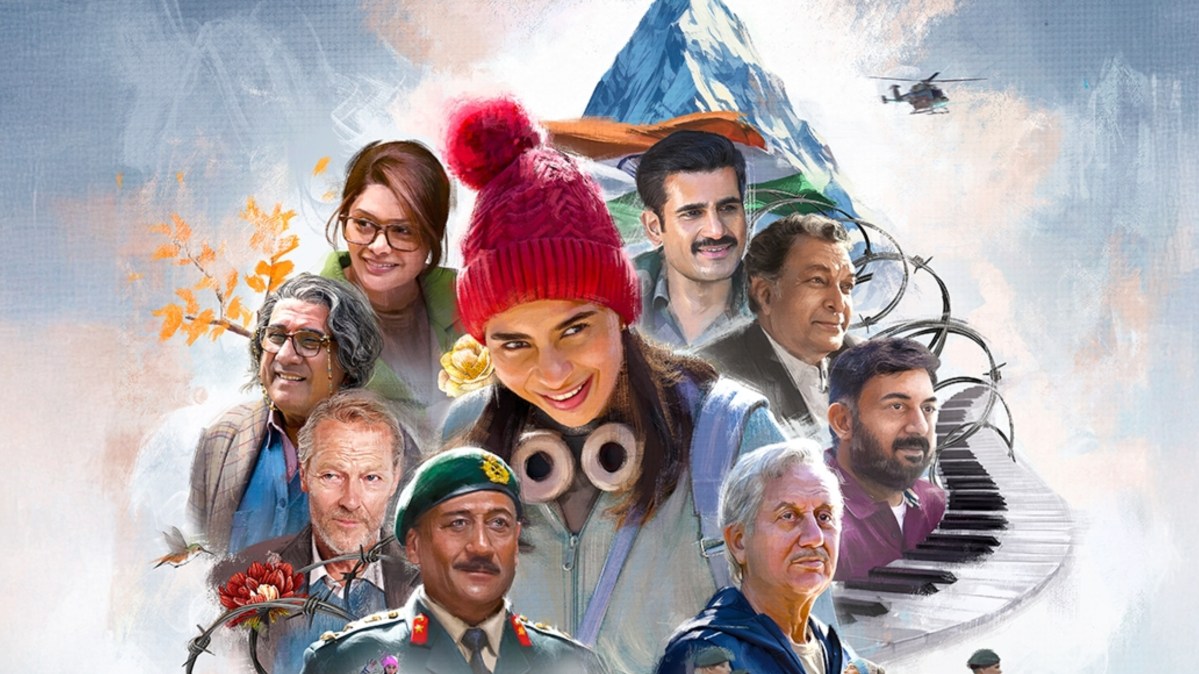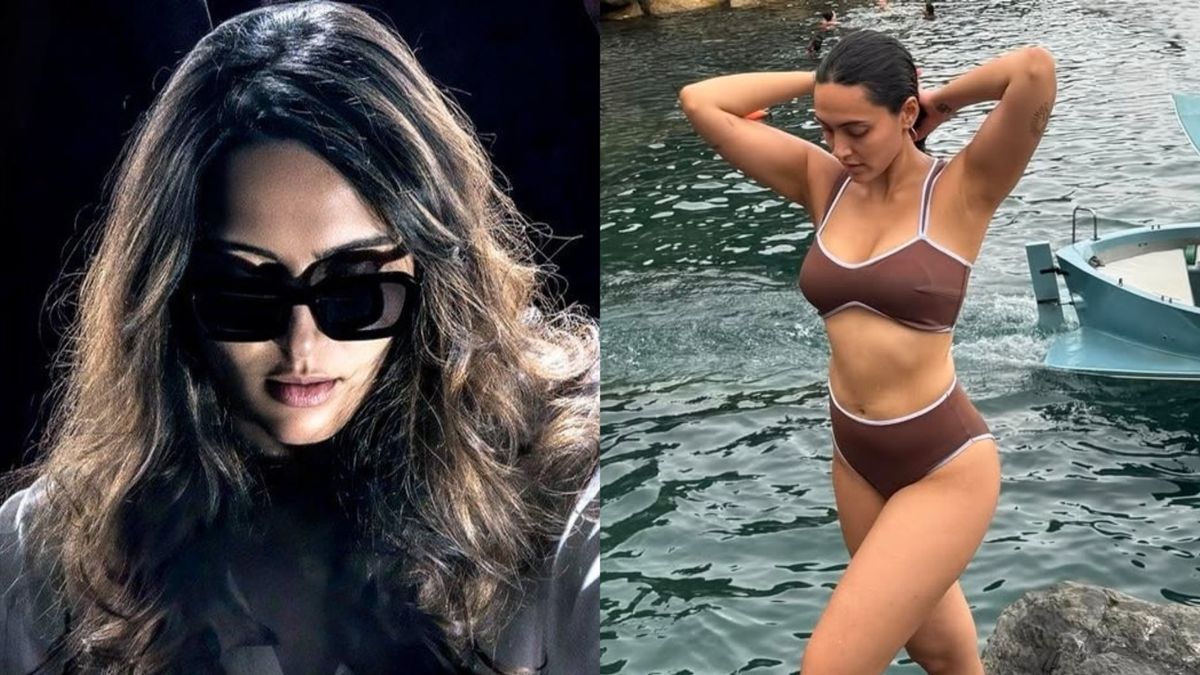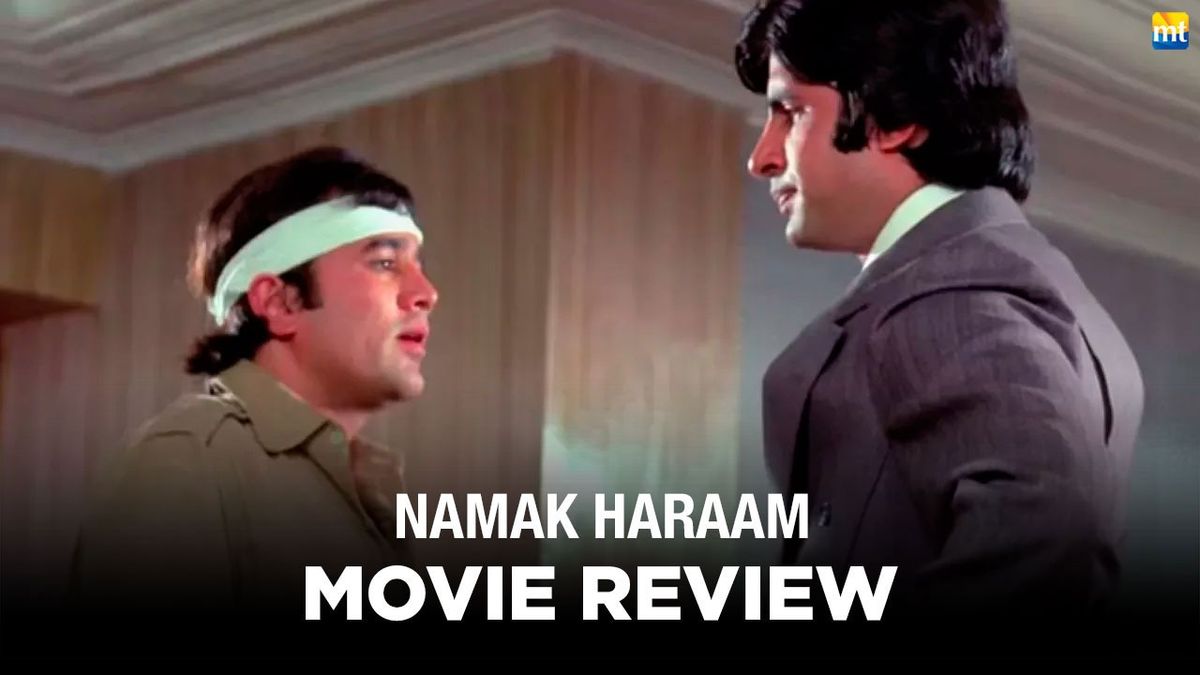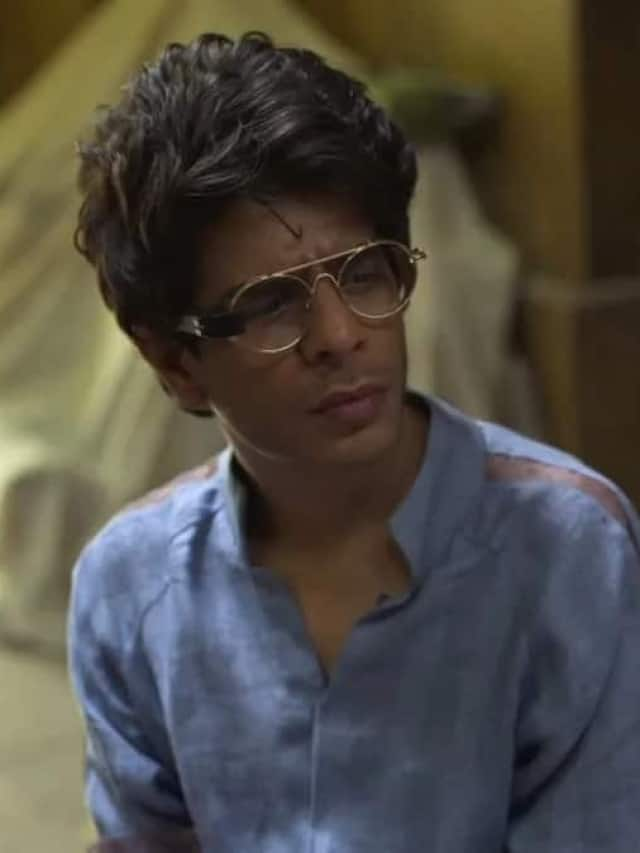
Tanvi the resilient is more appropriate – Beyond Bollywood
Loosely inspired by his kin, actor-director Anupam Kher’s film is one of ambition, resilience, but also explores intricate relationships in an Army household. Debutante Shubhangi is fairly competent in a difficult role, but it’s Kher who holds this film together.
Rating: ⭐️⭐️ ( 2 / 5)
By Mayur Lookhar
I once came across a video on social media – Anupam Kher was in a quiet, scenic hill town, chatting with a young boy. Kher has always had a warm way with children, something we’ve seen in his TV shows as well. In the video, he gently asked the boy his name and which school he went to. But when he asked about the boy’s father, Kher suddenly fell silent, clearly moved. If I remember right, the boy softly shared that his father was a soldier who had died – most likely while serving the country.
Kher was stunned and I imagine everyone who saw the video felt the same. It was a powerful reminder that while we often honour our martyrs with slogans like “Veer XY amar rahe,” few of us truly grasp what their families go through. The way Kher looked at the boy afterward, the look in his eyes, it said a lot. He seemed like someone who understands that kind of loss, even though, as far as we know, he hasn’t experienced it himself.
Story
Now, with Tanvi the Great (2025), Anupam Kher tells the story of a young girl with autism and her dreams. But what struck me even more was the film’s portrayal of the intricate dynamics within an Army household – especially one grappling with the loss of a third-generation soldier who died in Siachen. While we often celebrate the bravery of our Armed Forces, sometimes with loud jingoism, very few films pause to show what families go through after such a loss.
Before the screening, Kher shared that it was his niece Tanvi, who has autism, who inspired him to make Tanvi the Great. The film opens with the usual “work of fiction” disclaimer. This semi-fictional story is Kher’s tribute to his niece and also his sister Priyanka’s resilient spirit. He calls his niece different but no less, which also become the tagline of the film.
Tanvi (Shubhangi Dutt) lost her father when she was just seven. She now lives in Delhi with her mother, Vidya (Pallavi Joshi). When Vidya has to leave for the US for nine months to attend a World Autism Foundation program, she reluctantly leaves Tanvi in the care of her grandfather, Colonel Pratap Raina (Anupam Kher), in Lansdowne, Uttarakhand. Still grieving his son’s death and having barely spent time with his granddaughter, Col. Raina struggles to connect with Tanvi – especially since he doesn’t fully understand her condition. Things take an unexpected turn when Tanvi announces she wants to follow in her father’s footsteps and join the Army.
Screenplay & Direction
Penned by Ankur Suman, Abhishek Dixit, and Kher himself, the story rests on two key elements – the relationships between Tanvi, her grandfather Col. Raina, and her mother. Interestingly, the main plot only begins to take shape closer to the interval. Honestly, the family dynamics alone could have carried the film. But the larger purpose, and Tanvi’s resilience, truly come through in her dream of joining the Indian Army. And that’s what makes her Tanvi the Great.
There’s an old saying in Hindi, “Jispe beet ti hai, ussi ko pata hota hai” — only the one who goes through it truly understands. An ordinary person like me can never fully grasp what it means to live with autism or any such condition. But the film never seeks sympathy. Yes, the Tanvis of the world may be different, but they’re no less than anyone else. Tanvi The Great stays true to this belief throughout its 159-minute runtime.

The film opens with a tragic scene: Tanvi’s father, Captain Samay Raina (Karan Tacker), is travelling in an Army van in Siachen with his senior, Major Srinivasan. A blast occurs -presumably an IED set off by terrorists, and the next thing we see is Captain Raina, draped in the tricolour, with his 7-year-old granddaughter Tanvi standing before the coffin. The film revisits this tragedy moment later, revealing what really happened after the blast, but the way it’s shown on screen feels somewhat tacky.
The narrative gains momentum once Tanvi and Vidya arrive in Lansdowne. Tensions begin right away, with Tanvi panicking over her room. Later, at the dining table, she refuses to eat the milk-based kheer because she’s vegan, upsetting her grandfather. She doesn’t call him Dadu (grandfather), but strictly refers to him as Col. Raina. It becomes clear that Col. Raina will have to make a real effort to emotionally connect with his granddaughter.
Once Vidya leaves for the US, the film largely focuses on the delicate relationship between the grandfather and granddaughter. Many civilians assume that the families of fallen soldiers are always strong and resilient. But Kher’s film brings a human touch to an Army household, showing that they too are just as vulnerable and emotional as any other family.
Tanvi is ambitious, but the film never trades objectivity for fantasy. It subtly conveys the message of “different but no less,” even within prestigious institutions like the Armed Forces. Tanvi The Great is well-intentioned and carries the right message, but it’s let down by an inconsistent screenplay with the second half, in particular, feeling cumbersome and overly stretched.
Then comes the moment when logic kicks in. For all the talk about discipline, tough training, and equal treatment at Major’s (private) Academy, it’s puzzling how Tanvi is allowed to train without cutting her hair. As expected, she ends up falling short, not necessarily due to a lack of fitness, but because she disobeys an order during a critical training moment.
After the interval, we see Tanvi preparing for an interview with the Indian Army. This time, her hair is trimmed, she looks fitter, more confident, but where and how this transformation happened in Delhi is never explained. Kher and his writers simply skip over it.
Kher returned to direction after 23 years. His first film as a director, Om Jai Jagdish (2002), didn’t fare well, and we didn’t see Kher behind the camera again until Tanvi the Great arrived. His heart is clearly in the right place, but he doesn’t quite do full justice to this promising, inspiring story.
Acting

Debutante Shubhangi Dutt is an alumna of Actor Prepares (Anupam Kher’s Acting School). Kher claimed that it took six months him to find his Tanvi. “It was a difficult task to find Tanvi., because Tanvi represents goodness, innocence, charm, sense of wonder, funniness and purity!”, Kher had stated in his Instagram post.
The search ended when he conducted a master class, where he asked his students to shut their eyes and have total calmness in their faces. He saw #SHUBHANGI with her eyes shut and peace written all over face. Later she told them that she was actually in a dreamworld which was her security blanket.
Before the screening, Kher shared a moment with his niece. He once asked her why she was staring at a picture of a mountain, and she replied, “That’s my world.” Shubhangi carries Tanvi’s world in her eyes. The Siachen dream comes later. Earlier, it’s a mythical bird that brings a smile to her face and gives her strength. This is her first big break in Bollywood, and that too, in the challenging role of a person with autism. We found Shubhangi to be fairly competent in the part.

The human beings in her life have to work to earn her trust, but that’s not the case with Tanvi’s best friend, Cheenu — the doll who stands by her through every thick and thin. Cheenu doesn’t speak, but she’s a character in her own right.

Kher doesn’t like being called a veteran actor. But for all his vast experience, he can be a bit erratic. While directing his own student, there was no way the ‘master’ in Kher would drop his guard. He finely epitomises the broken spirit of Col. Raina — that sullen look rarely leaves his face. Through Tanvi’s journey, Kher helps Col. Raina slowly discovers the grandfather within him. Even as the script meanders, Kher largely holds it together with a very natural and moving performance. And for once, Kher’s hair stylist truly earns his stripes.

But the same can’t be said for Boman Irani’s hair stylist, as the actor struggles to look the part of his Urdu singer character, Raza. Nevertheless, Irani brings grace to the role, which is best described as a special cameo. It’s not his singing or Urdu that stands out, but rather the vital lesson Ustad Raza imparts – reminding us how many today can’t read Hindi. Well, his protégés may not be able to read, but they sure can sing.
Pallavi Joshi’s Vidya feels like a somewhat underexplored character. After all, Tanvi’s world revolves around her mother, but there’s a lack of conviction in Joshi’s portrayal. She hardly comes across as Kher’s sister-in-law on screen. It also raises a question -does any autism foundation actually conduct a nine-month program that requires participants to be physically present at the headquarters for such a long duration?

Jackie Shroff shines in his brief but important role as Brigadier Joshi. Roja fame actor Arvind Swami has been a revelation since his return to the Hindi entertainment space, and he is highly convincing as Major Srinivasan. He plays a tough Tamil officer who has now settled in Lansdowne, Uttarakhand. Despite carrying the weight of tragic memories from Siachen, he seems to have found his true calling in this quiet hill town.
Music
Given its moving plot, Academy Award-winner M.M. Keeravani perhaps felt compelled to compose for Tanvi the Great. The music isn’t extraordinary, but it doesn’t need to be – the songs reflect the mood and situations well. With our taste for Hindustani melodies, Mann Chala Manwa resonated the most. Lyricist Kausar Munir also weaves in an English antara, but it doesn’t feel out of place – thanks to the melodious tone of Gomathi Iyer, and not to forget Baby Sanvi’s gentle closing. There’s no forced nostalgia, but the bhajan Om Jai Jagdeep also finds a place in the film.
Final word
“Great” is often used, but a more fitting word to describe Tanvi the Great’s journey would be resilient. There was sincerity in Kher’s eyes as he spoke about the film — the personal connection behind it, the tough journey, and the friends who came together to bring Tanvi The Great to life. That’s beautiful. And yet, Kher was gracious enough to remind us reviewers not to let the film’s backstory cloud our judgment.
Tanvi doesn’t like negativity, but our reviews aren’t about being positive or negative, they simply reflect how a film resonated with us. Reviews are subjective, and we hope Kher and Tanvi will receive our humble perspective in the right spirit.
Watch the video review below.
Publisher: Source link



